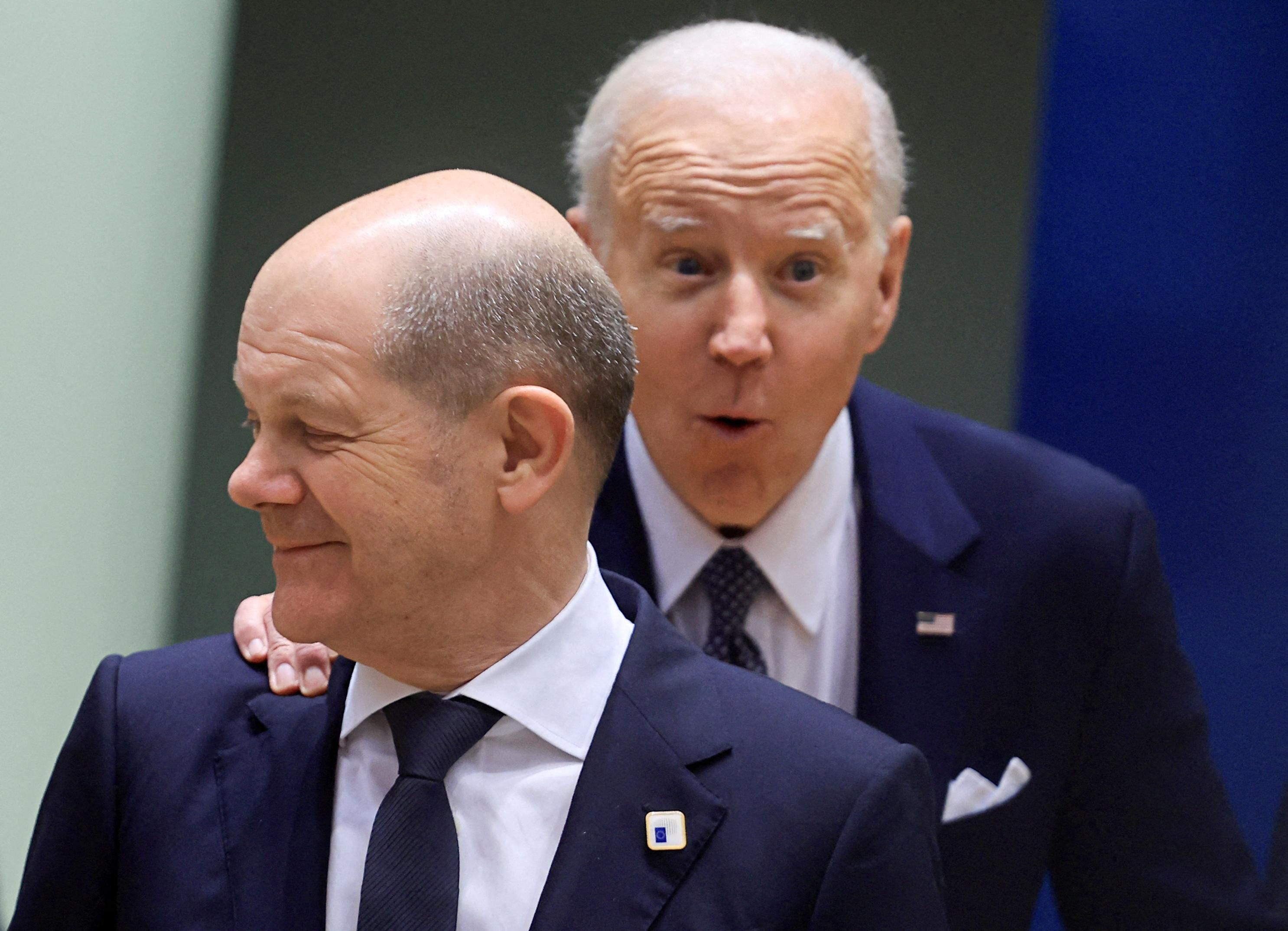EU signs US gas deal amid Biden's European trip
US President Joe Biden kicked off his meetings in Europe on Thursday with a few big salvos. Ship more weapons and humanitarian aid to the Ukrainians? Check. Welcome 100,000 Ukrainian refugees to the US? Check. Zoom with Ukrainian President Volodymyr Zelensky? Of course. Biden also said Russia should be booted from the G20, a grouping of the world's largest economies, ahead of a summit later this year in Indonesia.
The G-7 countries and the EU leveled new sanctions on Thursday against more than 400 Russians, including members of the Russian legislature. But the allies still aren't giving Zelensky what he really wants: a NATO-enforced no-fly zone to let civilians escape Russian attacks.
On Friday, the US and EU announced a major new gas deal that will see the US provide the EU with at least 15 billion additional cubic meters of liquified natural gas — last year it provided 22 billion cubic meters — by the end of 2022. The move is the latest bid to help reduce Europe's reliance on Russian gas. European leaders have shown little appetite for following the American example of banning Russian oil and gas outright, which German Chancellor Olaf Scholz warned would trigger a recession on a continent heavily dependent on Russian fossil fuels. Vladimir Putin, who knows this, recently hatched a cunning plan to cash in on his immense energy leverage over the EU ...
Putin's ruble ruse
With the ruble at historic lows and energy prices soaring over Western sanctions against Russia, Putin has found his own way to weaponize the financial system: he wants countries that backed anti-Russia sanctions to pay for Russian commodities in rubles. Why? First, he’s throwing the sanctions weapon right back at the West and artificially increasing demand for Russia's currency to prop up the ruble. Second, the Russian central bank desperately needs to exchange more rubles for hard currency to avoid defaulting on its sovereign debt. Third, a stronger ruble will help mitigate the impact of sanctions on ordinary Russians, whose cost of living has jumped 14% in recent weeks. Putin hopes Europeans are hungry enough for Russian oil and natural gas that they will ultimately cough up rubles. But to do so, Moscow's European customers would have to open accounts in the few Russian banks that haven't been sanctioned. And that's risky business ... because those banks could next.
Will China and India make up?
China’s foreign minister is visiting India on Friday for the highest-level bilateral talks between the two Asian powers since dozens of their soldiers were killed in clashes in contested territory in the western Himalayas two years ago. Wang Yi, Beijing’s top diplomat, is meeting his Indian counterpart to discuss the war in Ukraine and related energy and food shortages. Beijing and Delhi — both chummy with Moscow, but for different reasons — have so far refused to condemn Russia’s offensive in Ukraine. The topic of Nepal will also likely be on the agenda. India and China have long vied for influence in the landlocked Himalayan country and are likely unhappy that Kathmandu is trying to reduce its reliance on them in favor of a tilt toward Washington. China has been trying to improve relations with longtime rival India for some time. Less clear, however, is how India — part of the Quad alliance aimed at limiting Beijing’s influence in the Indo-Pacific — feels about getting cozier with Beijing. Things got off to a shaky start with India rebuking China over its remarks about the contested Kashmir region.More For You
For many in Iran, it’s a waiting game for how long Ayatollah Khamenei has left to live.
Most Popular
In a 30-minute call on Thursday, President Donald Trump reportedly told Ukrainian President Volodymyr Zelensky he wants to end the war with Russia as soon as possible — aiming for a deal by summer, but ideally within weeks.
Former British ambassador to the U.S. Peter Mandelson leaves his residence after he was released following his arrest by London police on Monday on suspicion of misconduct in public office, following the release of U.S. Justice Department files linked to the late financier and convicted sex offender Jeffrey Epstein, in London, Britain, February 26, 2026.
The ghost of Jeffrey Epstein continues to haunt the world.
Think you know what's going on around the world? Here's your chance to prove it.
